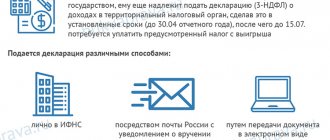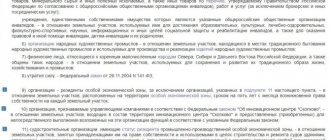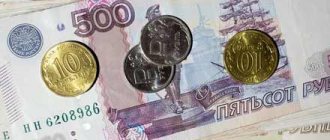What transfers are taxed on?
The news that the Federal Tax Service of Russia has officially announced a new tax is fake . Such information was not published either on the website of the government department or in other official sources. In addition, there were no statements from authorized persons.
Consequently, there was and is no tax on transfers between card accounts. This is nothing more than a piece of information that received favorable conditions after the start of testing the new law on self-employed citizens.
In this context, it should be noted that here, too, taxes are not levied on card-to-card transfers. We are talking about the profit that self-employed citizens can declare to pay tax on this amount. No deductions are made from the receipts to the debit or credit card.
The Federal Tax Service of the Russian Federation has repeatedly spoken out on this issue in order to nullify the basis for such misinformation. But citizens preferred to believe some dubious sources than a government agency that directly works with taxpayers.
Reasons for the tax panic
Rumors that the tax service will charge taxes for card-to-card transfers from Sberbank or other financial institutions appear several times a year. They are spread by people who want to create a sensation, but do not bother to understand the laws.
The main reasons for rumors about taxes for card-to-card transfers from Sberbank and other financial institutions are directly related to legal norms:
- Art. 210 Tax Code of the Russian Federation. List of income for which a tax resident of the Russian Federation must pay taxes.
- Art. 86 Tax Code of the Russian Federation. Obligations of banks to provide information to the Federal Tax Service when conducting tax control activities.
- Federal Law No. 422-FZ dated November 27, 2018. An experiment in a number of constituent entities of the Russian Federation is the new tax regime “Professional Income Tax”.
The population becomes somewhat wary when information appears that transfers between Sberbank cards will be taxed. After all, many use them to quickly transfer funds to relatives, return debts to acquaintances and friends, or, conversely, to receive them, and also actively use transfers within Sberbank.
Sberbank, other banks and the Federal Tax Service are actively trying to reassure the population. You have to pay taxes on every transfer of money to a card, and the tax payment procedure is not actually connected with the banking transaction at all.
When card data is transferred to the tax authorities
In parallel with this fake, the Russians were discussing another not very pleasant news. It was that at some point credit organizations will begin to transfer data on their clients to the tax authorities. Also, according to this news, it will be necessary to pay tax on each transfer received.
Since 2014, credit institutions began to provide data on customer accounts and deposits to the Federal Tax Service upon the first motivated request. If the transaction (transfer) exceeds 600,000 rubles, the origin of which is unknown, the bank transmits information on the account to Rosfinmonitoring. After checking the account, data on it can be transferred to tax or law enforcement authorities. In some cases, account information is not transmitted anywhere further.
Consequently, the bank will not transfer information on the client’s cards if it does not detect any violation. Receiving transfers in the amount of up to 600,000 rubles, as well as transactions in small amounts, are not subject to any tax. To force a person to pay 13% on the received transfer, it is necessary to prove that the money was received for a service or product. In practice, this is almost impossible to do.

Transfers from card to card from July 1: do you need to pay tax?
06/30/2018 2,781 2 Reading time: 10 min. Rating:
Author
: Konstantin Bely
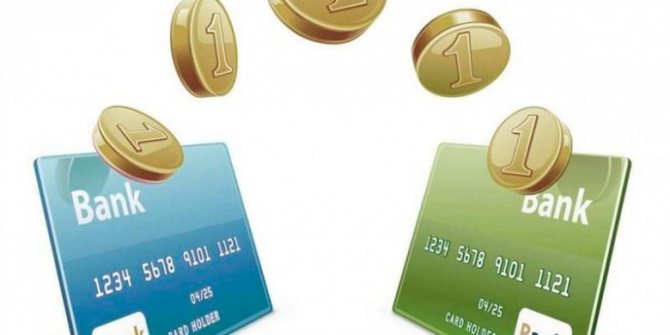
In recent days, terrible news has gripped the Internet: from July 1, transfers from card to card in Russia will be taxed, banks will submit information to the tax authorities, and there all dubious payments will be recognized as income and a tax of 13% will be charged, and for non-payment - even fine Against the backdrop of such rumors, many “just in case” rushed to withdraw money from cards, especially for large banks (Sberbank, VTB, etc.). Is this really so, will transfers from card to card be taxed, and is there any reason to panic? We’ll look at the answers to all these questions below.
I want to say right away that many news on this topic are greatly exaggerated and are published with the aim of attracting attention, creating a sensation, some kind of shocking effect, as often happens, and have little in common with reality. So, where's all this noise coming from?
From July 1, 2021, a law comes into force in the Russian Federation that makes some changes to just 2 articles of the Tax Code:
- Article 210 of the Tax Code of the Russian Federation - it lists all possible sources of income received in Russia and abroad.
- Article 86 of the Tax Code of the Russian Federation - it talks about the responsibilities of banks to exercise tax control and the interaction of banks with tax authorities.
According to Article 86, tax authorities have the right to request from banks and other financial institutions the balances and movements on the accounts of individuals (including card accounts), as well as on electronic wallets. But not just like that, but only as part of a tax audit of a specific person.
When can tax audits occur? As a rule, when it becomes clear that a person’s expenses do not correspond with his income. For example, when he applies for a tax deduction, submits an income tax return in which expenses significantly exceed income, etc. Also, a tax audit of an individual can be carried out when it acts as a counterparty to another person or enterprise undergoing an audit. In general, they will not check everyone, but only if there are some grounds for this.
To request data on balances and movements in accounts/wallets, a simple decision from a tax inspector is not enough: the decision to conduct an audit must be made by the head of the tax service or federal level management.
The ability of tax authorities to request information from banks about account balances and movements is not even an innovation; it existed before. From July 1, 2014, banks automatically send tax notifications about the opening of all accounts for individuals. And already, even before the innovations come into effect, they are also obliged to respond to requests from the tax office about balances and movements on these accounts. I previously wrote about this in the article Banking Secrecy.
Innovations only make some changes to this procedure, nothing more. And these changes only apply to accounts in precious metals! (previously, such accounts were not included in the list of those for which banks were required to report data at the tax office’s request, but now they are).
The tax office itself also gave official explanations on its website, they talk about the same thing and are located at: nalog.ru/rn77/news/activities_fts/7581190/
That's basically all that has changed. Surely 99.99% of people who panicked against the backdrop of innovations from July 1 simply did not have such accounts and do not have them.
Then let's return to the main question: do you need to pay tax when transferring from card to card or from account to account of an individual?
Everything is as it has always been. If these receipts are income on which tax has not yet been paid, then it is necessary. If they are not income, then there is no need.
What income is taxable income?
- Payment for ]freelancers[/anchor] and self-employed citizens;
- Payment for goods that a person sells (for example, for hand-made products or goods sold through online stores, when the payment method is a transfer to an individual’s card);
- Payment for rent of real estate or other assets;
- Receiving cash prizes and winnings.
What income is not taxable income?
- Net salary on which taxes have already been paid;
- Pensions, scholarships, benefits, other social benefits;
- Private money transfers (gratuitous financial assistance, etc.);
- Debt repayment (to avoid any disagreements with the tax authorities, be sure to draw up a loan agreement);
- Funds transferred to make joint purchases;
- Transfers between relatives.
The tax office can prove whether receipts from card to card constitute income only after an audit and through the court. If such a fact is proven, then the culprit will not only have to pay an income tax of 13%, but also a fine of 20% of the tax amount.
To avoid such problems, you need to honestly pay taxes on your income. If you do not pay them, there is a certain risk of being subject to a tax audit, being caught in non-payment of taxes, paying these taxes and a fine. First of all, unscrupulous taxpayers whose activities are visible, who have active accounts, receipts of large sums (for example, owners of online stores, active landlords, etc.) are at risk of falling under such an audit.
Such persons can be checked either at the initiative of the tax office or, for example, following a complaint from a dissatisfied client or neighbor.
The likelihood of some small freelancer who receives a small payment from his clients being caught for tax evasion is, frankly, small. Personally, I have never heard of such cases, although, let me remind you, all these procedures have been in effect since 2014.
Do banks themselves transmit information to the tax office about receipts on individuals’ cards? No, they do not transfer without receiving a corresponding request. However, they also analyze these receipts and can ask the client questions regarding their nature, demand some supporting documents, conducting mandatory and internal financial monitoring. This is another area of control, all the details about which you can find out at the link.
I hope you understand what will change in card-to-card transfers from July 1, 2021 (namely, nothing will change), in which cases banks transmit information about the movement of funds to the tax authorities, on which transfers you need to pay taxes, and on which No.
With this I say goodbye to you. I wish you all success in your financial affairs! See you again on Financial Genius - a site that will improve your financial literacy and teach you how to effectively manage your personal finances. Join our regular readers and stay tuned for updates.
Estimate:
In what cases is tax charged on bank transfers?
There is no tax on bank transfers . A tax of 13% is paid on income received by an individual. Such income is recognized as remuneration received for services provided or goods sold. Self-employed citizens enjoy tax benefits, but this does not change the essence. They are required to pay income tax on each amount received. If the information somehow reaches the tax authorities, then titanic work will be carried out on the individual citizen.
The Federal Tax Service will need:
- Determine the source of funds.
- Prove that the person received the money transfer not as a gift, but as a reward for work done.
- Collect from the defaulter income tax and penalties provided for violation of tax laws.
Similar measures will need to be carried out in relation to all bank cards to which money transfers are received. The scale of such work is colossal. To carry it out, the Federal Tax Service of the Russian Federation has neither technical nor human resources. Even though a significant part of money transfers is made in the form of remuneration.
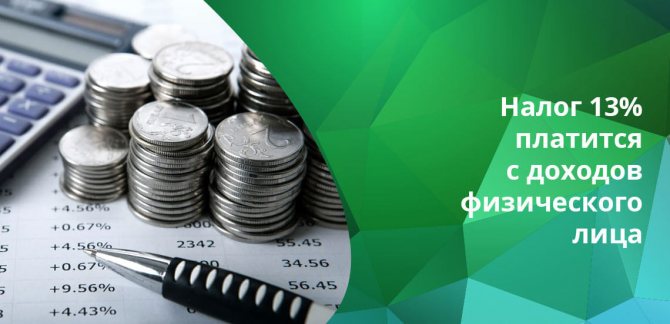
If a citizen conducts illegal business activities and funds are transferred to his card from different accounts, the bank will be obliged to block the card and transfer the information to Rosfinmonitoring. Next, the data will be forwarded to the tax authorities. Given the multiple nature of the transfers, illegal business activity is established quite easily. In this case, the citizen may face criminal liability.
about the author
Anatoly Darchiev - higher education in economics with a specialty in “Finance and Credit” and higher education in law in the direction of “Criminal Law and Criminology” at the Russian State Social University (RGSU). Worked for more than 7 years at Sberbank of Russia and Credit Europe Bank. He is a financial advisor to large financial and consulting organizations. Engaged in improving the financial literacy of visitors to the Brobank service. Analyst and banking expert. [email protected]
Is this article useful? Not really
Help us find out how much this article helped you. If something is missing or the information is not accurate, please report it below in the comments or write to us by email
Comments: 0
Your comment (question) If you have questions about this article, you can tell us. Our team consists of only experienced experts and specialists with specialized education. We will try to help you in this topic:
Author of the article Anatoly Darchiev
Consultant, author Popovich Anna
Financial author Olga Pikhotskaya






